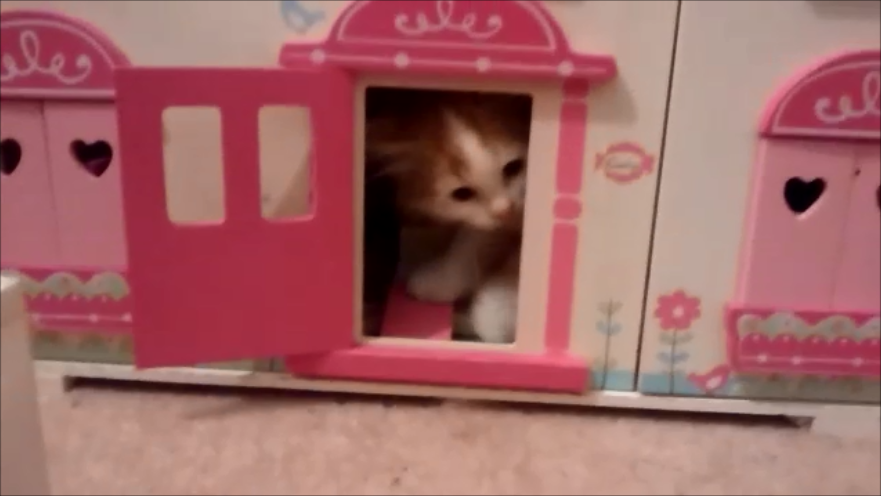"Look to nature” are words that are echoed from my childhood, from my mother. “Look to nature for guidance”.
With this is mind I start my first blog. A blog about free unstructured play!
If I rewind to this time last year we had a kitten. An incredibly playful one at that. With intrigue and pleasure I watched as he would lower his body to the floor, focus with such super intent as if his life depended on it and then when the time was right…… Pounce! Sometimes he missed, sometimes he didn’t. We were all a target of Jinx’s play – our fingers, toes, my girl’s dolls house, and bits of wool, leaves, balls or literally anything that would move. The Christmas tree took a massive hit. He mainly practiced his super-fast climbing skills there! But also he swiped at the baubles and by the end of the holidays there were very little decorations left on it. Not too long after this he got big enough to climb trees, walls and fences. This landed him into a new world. One he wasn’t fully ready for yet and many times “please rescue me” meows were heard. But he kept playing, all the time practicing for real life as a predator.
Now Jinx is a cat. He is a brilliant hunter. That predator survival instinct is there no matter how much we feed him! His brain in wired in this way, his play made sure this happened.
So, how is this relevant to children’s free unstructured play?
Looking at nature we see how a kitten spends its whole “kittenhood” preparing for adult cat life. We see how practicing and making mistakes all prepare him for adult life. Likewise children’s brains are wired to play, so that they can learn, practice skills, make mistakes all with the fundamental purpose of preparing for adulthood.
Free unstructured play is a type of play that is "self-chosen, self-directed and players are always free to quit. It is without any pressure, without expectations and without judgement”(1). It’s a type of play that occurs all the time in front of our eyes minus adult direction or interference. Children playing pirates, cooking, mammies and daddies, goodies and baddies, playing shop, climbing trees, or other made up games. Children are the experts in play. You can join them in their play as a follower and not the director!

Major brain development occurs during childhood. Through play and our relationships with children millions upon millions of neural pathways are developing. Developing at an incredibly fast pace. 90% of brain development happens before 5yrs old.
Play is how children learn. This fact is written about repeatedly by many professors and theorist in the area of childhood development. Leading childhood trauma expert Dr. Bruce Perry refers to play as “brain fertilizer”. World renowned play therapist Dr. Rise Vanfleet states “play is a form of communication". Dr. Peter Gray an American evolutionary psychologist writes and talks extensively on the role of play for our species. He argues that through evolution we keep what is important to our survival and that children’s brains are wired for play. He also writes about the decline of free play in the US over the past 100 years and the increase in anxiety and other childhood psychopathologies.(2)
Currently there is great focus here in Ireland about adult mental health, we need to acknowledge and also look at how we can support mental health in our children.
Children need free unstructured play.
It importantly allows children time to de-stress, to unravel what they have been observing, play out concepts they are learning so that they can learn, test out new roles, figure out relationships with their peers, negotiate and co-operate. Just to note that all types of play is important. For this blog I focus on free play. Whatever play a child leads you too is exactly what the child needs to learn and practice at that very moment. Childhood is a time for children to be just that… children.
We need to ask these questions - Do we underestimate its role in children’s development? And is our society at risk of undervaluing free play. If so it’s time to change. Put value on “unstructured play” – provide the space (time) for it in our children’s day but not in a controlled or prescriptive way, let it unfold naturally. We should ensure that its value is remembered in our homes, our schools and society.
References:
(1) Dr. Peter Gray – Link to Psychology Today
(2) Dr Peter Gray – Decline of Play
VanFleet, R., Sywulak, A., Sniscak, C. (2010). Child- Centered Play Therapy. The Guilford Press


